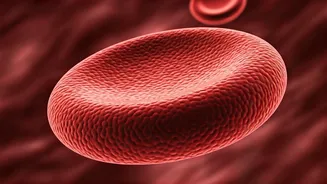Cholesterol and Body
Cholesterol, a fatty substance, is naturally produced by your liver and is vital for many bodily functions. The liver generates all the cholesterol the body
requires. It also takes on the task of removing excess cholesterol through the digestive system. However, the liver’s method of eliminating cholesterol isn't foolproof. Some cholesterol can get reabsorbed back into the bloodstream, potentially leading to elevated levels. The body’s systems are in a constant state of flux, aiming to maintain a delicate balance.
Liver’s Role in Detail
The liver is the body's central processing unit for cholesterol. It doesn't just produce it; it also manages its removal. The primary method for eliminating excess cholesterol involves secreting it into the gut through bile. This process, however, isn't always fully effective. Some of the cholesterol that the liver disposes of can be reabsorbed from the gut back into the body. This reabsorption can contribute to higher cholesterol levels if the body isn't able to completely eliminate the excess. Consequently, the efficiency of the liver's disposal mechanism significantly impacts overall health.












